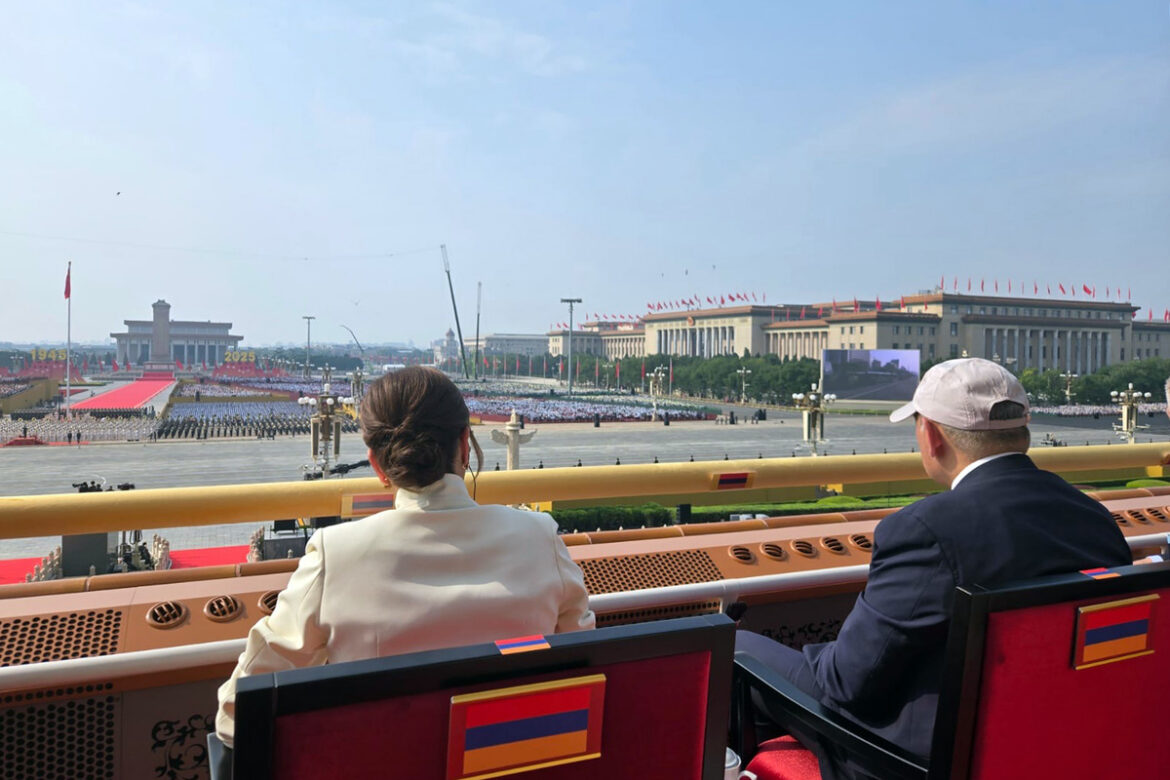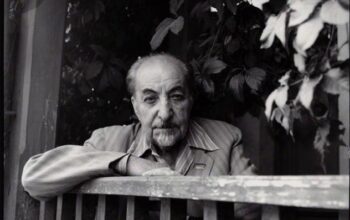Prime Minister Nikol Pashinyan was among more than 25 foreign leaders in Beijing on Wednesday for a grand military parade marking the 80th anniversary of Japan’s surrender in World War II. The display of force—featuring 10,000 troops and hundreds of armored vehicles—was widely seen as a projection of China’s rising power and drew sharp criticism from U.S. President Donald Trump.
From Tiananmen Square, Chinese President Xi Jinping watched the 70-minute procession flanked by Russian President Vladimir Putin and North Korean leader Kim Jong Un. Trump reacted with fury, charging that the three leaders were “conspiring against the United States of America.”
The parade capped a week of high-level diplomacy. Earlier, Pashinyan attended a Shanghai Cooperation Organization (SCO) summit in Tianjin, where regional security and economic cooperation were on the agenda. On the eve of the summit, he held talks with Xi, resulting in a joint declaration that formally elevated Chinese-Armenian relations to a “strategic partnership.”
The statement pledged expanded cooperation in trade, investment, and other areas. China is already Armenia’s second-largest trading partner after Russia, with bilateral trade reaching nearly $1.2 billion in the first half of this year, according to Armenian government figures.
Pashinyan also reiterated Armenia’s aspiration to join the SCO, a bloc dominated by China and Russia and comprising 10 Eurasian states. His government first floated the idea in July—just months after formally committing to seek membership in the European Union. The dual track has raised eyebrows: Moscow bristled at Yerevan’s EU bid, while observers note that overtures to the SCO underscore Armenia’s effort to balance between East and West.




